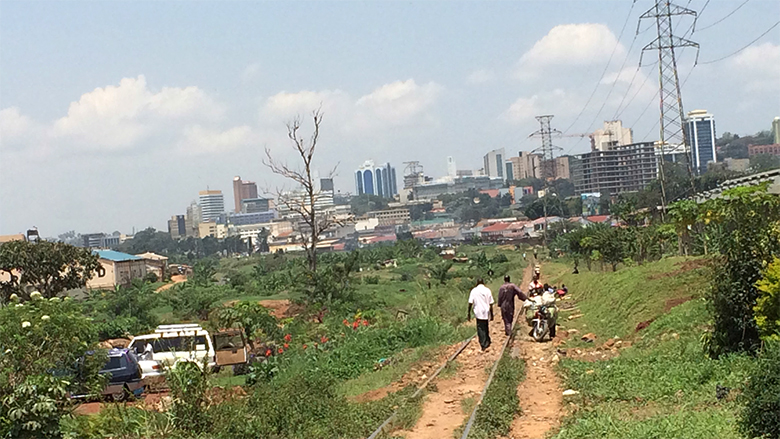KAMPALA, October 14, 2015 – As Uganda’s capital city continues to experience significant urban and economic growth, informal development in unplanned areas has put a strain on its natural environment and is eroding the vital ecosystem services it provides, according to a new World Bank report.
The report, Promoting Green Urban Development in African Cities: Kampala, Uganda Urban Environmental Profile, estimates that 40% of Kampala’s population lives in informal settlements predominately developed near wetlands throughout the city, without basic infrastructure such as water services, storm drainage, sewage treatment and solid waste collection. The report, launched jointly with the Kampala Capital City Authority, notes that the densely-populated informal settlements are a consequence of the rapid urbanization the city has experienced for decades, making Kampala the second fastest-growing city in Eastern Africa.
“Before 1989, most development in Kampala occurred along major transportation routes,” said Roland White, World Bank task team leader and global lead of city management, governance and financing, and an author of the report. “With the recent increase in population, particularly the move into the city by the rural poor, people are now predominately living in areas which are prone to flooding and are environmentally vulnerable. This is one of the key factors in the overall decline of the quality of the natural environment.”
Climate change is placing further constraints on the government’s ability to manage the urban environment, the report says. Storm runoff levels from the heavy rainfall caused by climate change exceed the city’s infrastructure capacity, according to the report, exacerbating chronic flooding and the spread of pollution, which is further degrading the natural environment.
The urban environmental profile is the first component of a larger World Bank-supported project linking the study of urban environmental issues with the advancement of more sustainable urban growth. The report summarizes the existing quality of the wetlands and other aquatic and terrestrial areas in Kampala, identifies the causes of their environmental vulnerability, and the significant institutional challenges and constraints that interfere with the city’s ability to address them. The report is intended to be a resource for city government officials as they work to manage urban environmental challenges.
“There is limited environmental data available on Kampala,” said Chyi-Yun Huang, World Bank urban specialist and an author of the report. “This report provides a comprehensive review of the city’s key natural assets, the drivers of degradation and recommendations for next steps, which city officials can use to inform decisions on how they can protect, and even enhance the environment, particularly as large numbers of new migrants continue to move into Kampala.”
Additional key findings of the report include:
- Inadequate and ineffective planning has been a key obstacle to providing the management required to protect the city’s environmental assets
- Little protection for the city’s environmental assets has been afforded under the current regulatory regime
- The land management system requires significant financial outlays for public acquisition of land for infrastructure and service facilities, which constrains delivery of sanitation, solid waste, and drainage services
